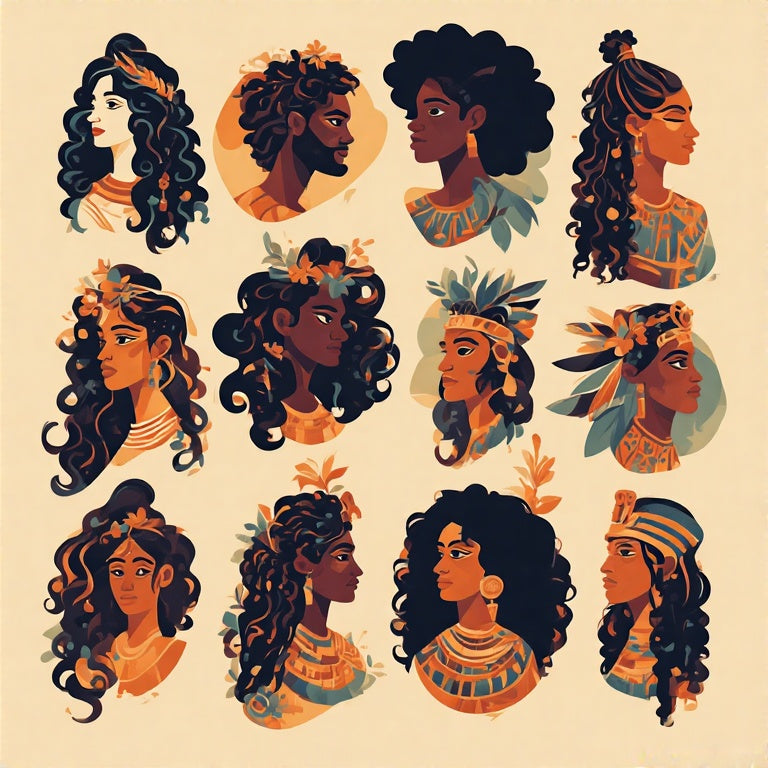
Hair Around the World: A Journey Through Culture and Curls
Picture this: you're having a bad hair day, and your curls are doing their own thing (again). You might think, "Why me?" But here's the thing – curly hair has been making statements and telling stories across cultures for thousands of years. Your wild mane isn't just hair; it's connected to amazing traditions around the world!

Ancient Greece: When Curls Were Beautiful
Long ago in ancient Greece, curly hair was seen as beautiful and desirable. Look at any Greek statue of gods, goddesses, or heroes – you'll see gorgeous curls carved into marble. The Greeks clearly thought curls were worth celebrating! They spent time styling their hair into ringlets using heated metal tools. Some things really never change, do they?

West Africa: Your Crown and Glory
In many West African cultures, hair is often called your "crown and glory" – and they mean it! Hair styling has deep cultural meaning, with different braids and styles showing things like age, marital status, or which community you belong to. Natural hair textures are celebrated, and hair care knowledge gets passed down from mothers to daughters through generations.

Jewish Traditions: Curls with Sacred Meaning
In Orthodox Jewish communities, some men grow curls called "payot" or "peyos" at their temples. These aren't just a hairstyle choice – they're part of religious law that says not to cut the hair at the corners of your head. It's a tradition that connects people to their faith and has been practiced for centuries.

Native American Cultures: Hair as Strength
Many Native American tribes view hair as connected to personal power and spiritual strength. Long hair – often naturally wavy or curly – is seen as sacred. That's why cutting hair can be part of mourning rituals, because it represents giving up part of yourself. Hair braiding and natural textures are honored in many tribal traditions.

India: Sacred Hair Traditions
In Hindu culture, hair holds spiritual significance. Many people visit temples like the famous Tirupati temple to donate their hair as an offering. This practice, called "tonsuring," is believed to show devotion and humility. The donated hair is then often made into wigs and extensions that are sold around the world.

The Caribbean: Natural Hair Wisdom
Throughout the Caribbean islands, there's a rich tradition of caring for natural, curly hair using local ingredients. Coconut oil, castor oil, and other natural products have been used for generations to keep curls healthy and strong. These hair care secrets get shared within families and communities as treasured knowledge.

Ancient Egypt: Curls and Style
Ancient Egyptians were serious about their hair game! Both men and women wore elaborate wigs and hair pieces, many with curls and waves. Wall paintings show people with beautiful curly styles, and archaeologists have found ancient curling tools made of wood and metal. Even Cleopatra was often shown with gorgeous curls!

Modern Day: Celebrating All Textures
Today, we're seeing people reconnect with their natural hair and learn about their cultural heritage through traditional hair care practices. The "natural hair movement" has helped people embrace their curls and learn techniques from cultures around the world.
So the next time your curls are acting up, remember – you're part of an incredible story that spans continents and centuries. Cultures throughout history have found ways to celebrate, style, and care for naturally curly hair.
Your curls have always been worth celebrating! What's your hair story? Tell us! We'd love to hear it!
